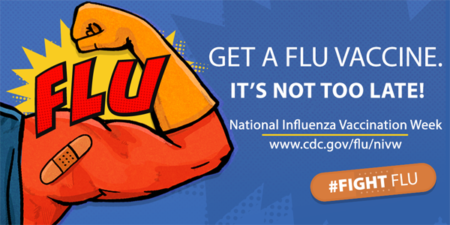November 26, 2021

When it comes to vaccines, most of the conversation these days concerns shots to protect us from COVID-19. People who are living with a heart condition are at higher risk of both contracting the virus that causes COVID, and experiencing serious illness when they do.
But this is no time to overlook the importance of other vaccines. The Centers for Disease Control and Prevention (CDC) says it’s especially important for people with cardiovascular conditions to get the pneumococcal vaccination that protects against pneumonia, meningitis and bloodstream infections. And it’s also important to get the annual vaccine to protect against seasonal flu.
Heart disease and the flu—what’s the connection?
Experts from Houston Methodist recently published an article in the Journal of the American Heart Association that demonstrated the connection between seasonal flu and heart attacks. Their findings revealed that:
- Cardiovascular deaths and influenza epidemics both spike around the same time.
- People are more likely to have a heart attack if they’ve just had a case of the flu.
- More than 11% of people who are hospitalized for effects of the flu had a serious cardiac event.
- Of those cases, 31% required intensive care, and 7% were fatal.
Why is the flu so harmful to our hearts?
We might think of the flu as just a matter of a sore throat and body aches. But consider that those things are caused by inflammation—the same process that can affect the heart. “Inflammation occurs when your body’s ‘first responders’—white blood cells and what they produce in order to protect you—convene in an area and get to work fighting an infection, bacteria or virus,” say the Houston Methodist experts. “When you’re sick, you can typically feel the effects of these ‘combat zones’ in the swelling, tenderness, pain, weakness and sometimes redness and increased temperature of your joints, muscles and lymph nodes.”
The team, headed by Dr. Priyanka Bhugra, explains that this inflammation can lead to dangerous blood clots, elevated blood pressure and even scarring and swelling within the heart that can cause a heart attack or a stroke, as well as worsening heart failure symptoms and arrhythmias.
Why should people with heart disease get their annual flu shot?
The Houston Methodist experts report that patients who get their annual flu vaccine are less likely to be infected with the influenza viruses that are spreading. Vaccines can’t prevent all cases of seasonal influenza, but if a vaccinated patient does get the flu, they are much less likely to be hospitalized or go to the ICU. They’re less likely to have a heart attack or other serious cardiovascular event.
The team also notes that because most heart patients visit their cardiologist more than their primary care doctor, and few cardiology practices provide flu shots, patients should get the vaccine either from their primary care doctor, or at the pharmacy.
The CDC urges people with a heart condition and all older adults to ask their doctor about the right timing and type of flu shot. Some varieties of flu immunizations may be recommended above others.
CDC experts also remind heart patients to take other everyday preventive actions, such as avoiding people who are sick, and washing their hands often. And if a patient develops flu symptoms, they should talk to the doctor right away. The doctor may recommend treatment, such as antiviral drugs to make flu illness milder.
Also of note: Some experts say that wearing masks not only helped patients avoid contracting and spreading COVID-19, but also contributed to a much milder flu season during 2020-21. That’s good news—and a reminder that we should all continue to take precautions to protect heart patients and everyone else from all contagious illnesses.
The information in this article is not intended to replace the advice of your health care provider. Ask your doctor which vaccines are right for you.
Source: IlluminAge with information from Houston Methodist (www.houstonmedicine.org) and the Centers for Disease Control and Prevention.
